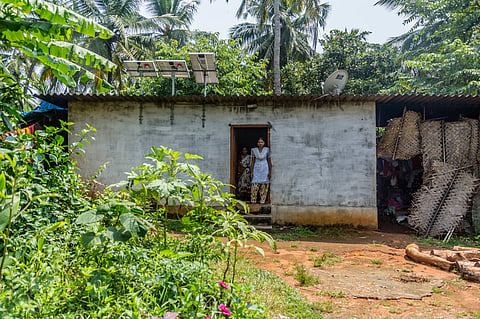SELCO focuses on energy programmes
Moving from simple sustainable energy solutions to advocacy for a paradigm shift in development interventions with a replicable ecosystem approach democratises development, SELCO believes. This, explains its co-founder and MD Harish Hande, institutionalises inclusivity, encourages localised solutions and enforces grassroots ownership – all without compromising the environment. This approach has enabled the 25-year-old company to radiate out of its Bengaluru headquarters and impact more than 300,000 families in various part of India.
While the 20th and 21st centuries have seen unprecedented advancement for human civilisation in terms of technology, transportation and communications, millions around the world have little or no access to fundamental services like basic health, education, clean water and livelihoods, Hande points out. Climate change has now added to the problems with floods, droughts and cyclones.
Concentrating on the energy nexus with some of the most critical human needs like health, livelihood and energy, SELCO and its 10-year-old Foundation uses decentralised renewable energy systems to design interventions where they are required – democratising the entire process. A pregnant woman in Arunachal Pradesh, for instance, need not be taken far for a reliable delivery: it can be done at the solar-powered local public health centre; a student living near Loktak lake in Manipur can get solar-powered digital education; a seamstress in Chitradurga, Karnataka, can increase her productivity by using her solar-powered sewing machine; and a farmer producer organisation can use a solar-powered cold storage system to keep its produce fresh. Focussing on the North East, Odisha, Jharkhand, Madhya Pradesh, Maharashtra and Bihar, the Foundation is proving that development and sustainability can go hand in hand.
SELCO’s work is divided into four parts: innovation, pilot implementation and replication; then incubation; scale-up; and, finally, global replication. The most important of these being innovation, where it works on the combination of technology, finance and market linkage innovations. In the case of sewing machines, for example, it works with manufacturers to develop highly efficient machines, with bankers for affordable financial products and finally with partners who have expertise in market linkages: combining social, financial and environmental sustainability.
Incubation involves inspiring and mentoring clean energy enterprises in rural areas. Next, SELCO partners with organisations from other sectors – health and livelihood – to institutionalise sustainable energy within their existing programmes. The global replicationvertical is aimed at linking solutions that have been successful in India to be implemented in similar topographies in other countries.
Recognising the importance of creating a next set of grassroots leaders in the climate space, SELCO partnered with India Climate Collaborative (ICC) and TATA Trusts to showcase 40 young ‘climate voices’, who have traversed rural and urban landscapes and implemented solutions spanning areas from deserts to mountain ranges and innovated in areas like sustainable construction, renewable energy and environmental education.

